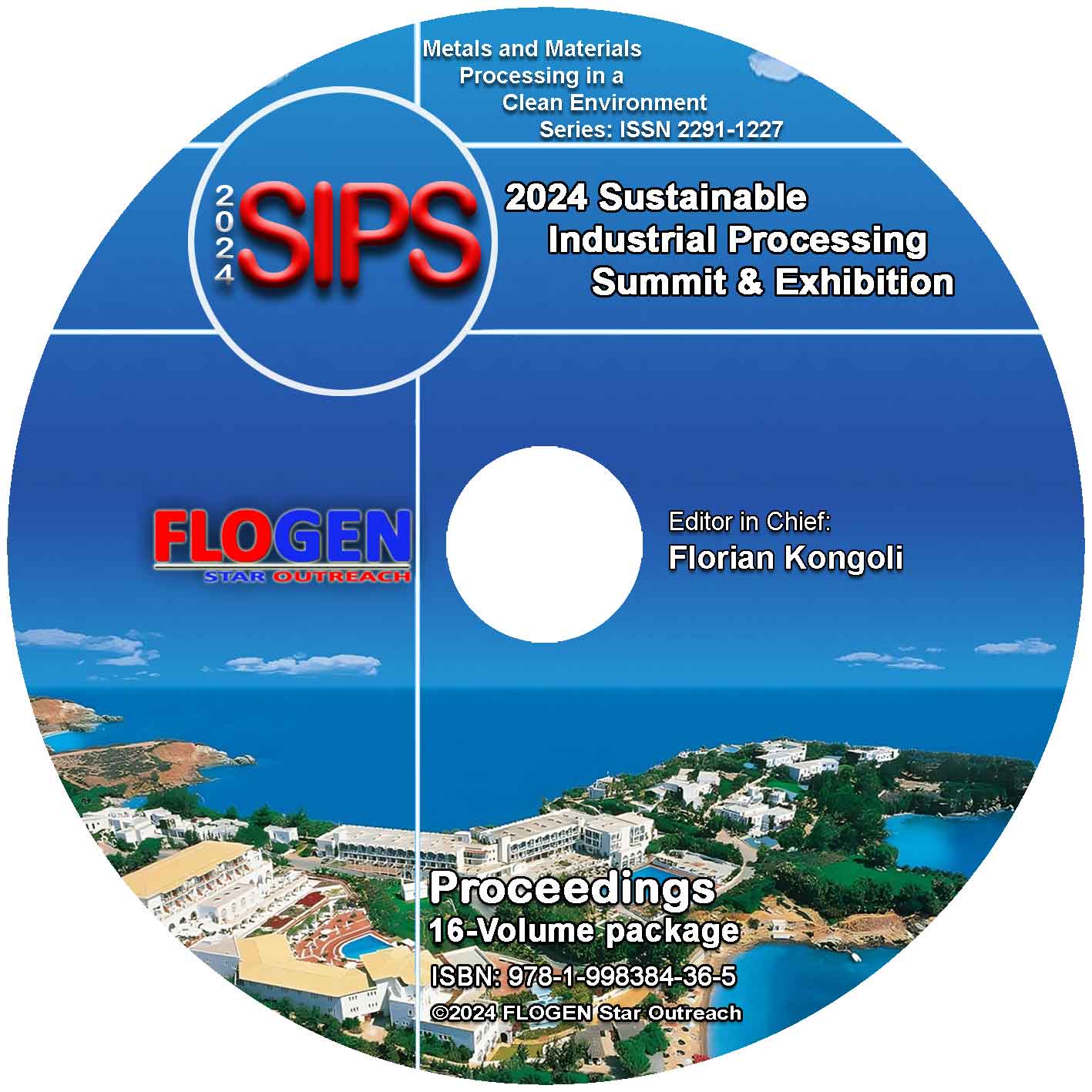2024 - Sustainable Industrial Processing Summit
SIPS 2024 Volume 3. Dibra Intl. Symp / Laws & Their Applications
| Editors: | F. Kongoli, H. Carter, Y. Hayakawa, B. Jedlickova, M. McNeil, M. Nolan, E.S. Pana, D. Shanley |
| Publisher: | Flogen Star OUTREACH |
| Publication Year: | 2024 |
| Pages: | 268 pages |
| ISBN: | 978-1-998384-08-2 (CD) |
| ISSN: | 2291-1227 (Metals and Materials Processing in a Clean Environment Series) |

CD shopping page
THE LACKING ETHICS IN THE ACADEMIC WORLD
Marcos de Campos1;1FEDERAL FLUMINENSE UNIVERSITY, Volta Redonda, Brazil;
Type of Paper: Regular
Id Paper: 519
Topic: 61
Abstract:
The lack of Ethics in the academic world is a serious problem. The criticism of Jonathan Swift in Gulliver Travels (1726), is still valid [1]. In this sense, we remain in middle age. This is not the only obsolete thing nowadays: In the year 2000, The Roman Right of Roman Emperors is still used. Arminius revolt [2] was against the Roman code of laws, essentially. Maybe what makes the Roman ridiculous is the punishment system: jail for everything. The time of jail varies since 1-2 days to entire life. Also signing a confession (even if innocent) may result in condemnation.
Criticizing the authorities is always a risky task: Galileu Galilei was incarcerated for defending that the Earth orbits the Sun (and not the inverse). To avoid trouble, Copernicus asked to have his book published after his death. Criticizing “authorities” always is a risky task, because then “authorities” are no longer “authorities” and lose their political power, money and other assets.
In the 20th Century Cecilia Payne was forced to change her conclusions in her PHD Thesis [3]. No Nobel Prize to her! By another hand, influential people are able to publish wrong papers. Everett was advised by John Weller [4], a very influential figure in the politics of Physics. Thus, the Many World hypothesis [4] was published (but it obviously violates the principle of conservation of energy!). Such absurd papers are published and can receive large number of citations. By another hand, Oliver Heaviside also almost was banned from scientific life [5]. No Nobel Prize for him!
There are Lobby for some authors. Thus, be careful about “invited papers”, which may even admit completely wrong ideas! The two more relevant corrupt issues are the “networking” and the Ponzi scheme. Correct papers are rejected, whereas wrong papers are accepted and even published several times. Editors and Referees are “rigorous” with some authors, and lenient with others. The Ponzi (or pyramid) scheme makes that the PHD candidate always have to confirm the thesis of the advisor.
Here it is discussed on how we can escape from such corrupt system. The Fourier series were presented in 1807, but Poisson, Legendre and others denied its publication [6]. Soon after Fourier published a book (by his own) in 1822, Fourier was elected for the Royal Society [7] (but 15 years were missed)! Conclusion: The soapbox oratory is the ultimate solution [8].